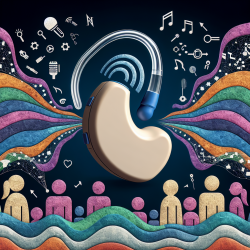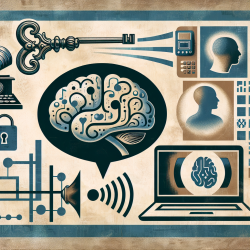Understanding Iowa's Individualized Education Program (IEP) Policies
In the realm of special education, Iowa has set forth comprehensive policies to ensure that students with disabilities receive the tailored support they need. The development of Individualized Education Programs (IEPs) is a cornerstone of this approach, designed to cater to the unique educational requirements of each student.
What is an IEP?
An Individualized Education Program (IEP) is a meticulously crafted document for each student with a disability. It outlines the special education and related services the student will receive. In Iowa, this process is governed by stringent rules and procedures to ensure compliance with the Individuals with Disabilities Education Act (IDEA).
Key Elements of Iowa's IEP Policies
- All public and private agencies must adhere to established procedures for creating, reviewing, and revising IEPs.
- An IEP or an Individualized Family Service Plan (IFSP) must be developed before any special education services are provided.
- IEP meetings must be held within 30 days of determining a student's need for special education, and the IEP must be implemented at the start of the school year.
- The IEP team is composed of the child's parents, regular and special education teachers, a representative of the public agency, and other individuals with special expertise as needed.
Inclusive IEP Meetings
Iowa's policies emphasize the importance of inclusive IEP meetings. These meetings should involve all relevant parties, including parents, educators, and specialists. In cases where a student is transitioning from Part C (early intervention services) to Part B (school-age services), representatives from both programs are encouraged to participate.
Transition Services
Transition services are a critical component of the IEP for students aged 14 and older. These services aim to prepare students for postsecondary education, employment, and independent living. The IEP must include measurable postsecondary goals and the necessary transition services to achieve these goals.
Addressing Diverse Needs
The IEP must consider various factors to address the diverse needs of students, including:
- Behavioral strategies for students whose behavior impedes learning.
- Language needs for students with limited English proficiency.
- Instruction in Braille for students who are blind or visually impaired.
- Communication needs for students who are deaf or hard of hearing.
- Assistive technology devices and services.
Monitoring and Evaluation
To ensure compliance with state and federal regulations, the State Education Agency (SEA) and Area Education Agencies (AEAs) conduct regular monitoring and evaluations. These procedures involve a comprehensive review of the agency's policies, procedures, and documentation related to IEPs.
Ensuring Parent Involvement
Iowa's policies prioritize parent involvement in the IEP process. Parents are notified of meetings and provided with the necessary information to participate effectively. If parents are unable to attend, agencies must document attempts to involve them and provide interpreters if needed.
Flexibility and Adaptation
IEPs are not static documents; they can be amended or revised as needed. Changes can be made without a meeting if agreed upon by the parents and the Local Education Agency (LEA). This flexibility ensures that the IEP remains relevant and effective in meeting the student's needs.
Conclusion
Iowa's IEP policies reflect a commitment to providing personalized and effective education for students with disabilities. By involving parents, educators, and specialists, and by considering a wide range of factors, Iowa ensures that each student's unique needs are met.
For more information, please follow this link.










